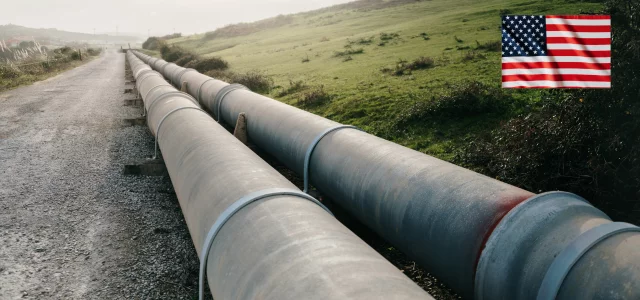
This article originally ran on Forbes.com on May 1, 2025. All rights reserved.
Daniel B. Markind is a Forbes.com energy column contributor. The views expressed in this article are not to be associated with the views of Flaster Greenberg PC.
In 2020, following a bitter eight-year fight, Williams Corporation canceled its plans to build the Constitution Pipeline. The pipeline would have carried natural gas from the gas fields of Northeastern Pennsylvania approximately 124 miles northeast into the Southern Tier of New York State where it would have connected with integrated pipelines at that location that already feed New York and New England. (Source).
The pipeline was originally scheduled to open in 2015, but it never did. Fought tooth and nail by the administration of then New York Governor Andrew Cuomo, the New York Department of Environmental Conservation (DEC) refused to issue the pipeline a Water Quality Certificate (WQC) under Section 401 of the Federal Clean Water Act, even though the existing pipeline infrastructure could have easily accommodated and allowed a new gas source with little extra fanfare.
The Cuomo administration essentially claimed that, by depriving the project of the ability to move gas through New York to New England, where it was (and still is) most needed, this would somehow encourage and accelerate New York State’s conversion to so-called “green” or renewable energy as a whole. In effect, New York claimed the right to dictate energy policy for all of New England, whether the citizens who actually reside in that region accepted and agreed with New York’s energy policies, or not. (Source).
In the years since, New York State’s dreams of large-scale renewable energy have fizzled. (Source). Now, New York’s energy prices are among the highest in the nation (Source) and as prices remain high, support for more green energy projects has stalled, unless electricity users can be assured that their prices won’t continue to go up. (Source).
Enter the Trump Administration. On Friday, March 14, President Trump met with current New York Governor Kathy Hochul to try to get the pipeline project back on track. (Source). During the first week of his second term, Trump declared a national energy emergency so he could direct the Army Corps of Engineers to fast track the pipeline’s approval where needed around the nation. (Source). This was an attempt to bypass Section 401 of the Clean Water Act.
Environmentalists howled. They have no doubt learned that the public’s tolerance for forced policies and aspirational, but not necessarily workable, concepts like the Green New Deal has diminished considerably since 2015. According to The Federalist, New Yorkers could save $1B in energy costs if the Constitution Pipeline were now to be built, let alone increasing energy availability and further driving down costs in places like New England that are left with little other choice at present. (Source). Aside from the above, this has national security implications as well. Incredibly, despite being only hours away from some of the most prolific natural gas wells in the world in Northeastern Pennsylvania, neither New York City nor New England has a reliable, and “safe” way to transport that gas from Pennsylvania. These areas still rely heavily on natural gas imported from faraway places like Trinidad instead of nearby Pennsylvania. (Source).
As President Trump pushes for a resurrection of the Constitution Pipeline, northeast governors like Maura Healy of Massachusetts and Ned Lamont of Connecticut face enormous pressure over high energy costs. If the Constitution Pipeline ever gets built, it will be another signal of a massive shift in United States policy toward economic and environmental realism and away from "Green New Deal" idealism.
- Shareholder
Shareholder Daniel B. Markind serves as the lead of the Aviation Law Industry Group and Government Relations Practice Group.
He has more than 40 years of experience as an airport, real estate, energy, and corporate transactional ...


